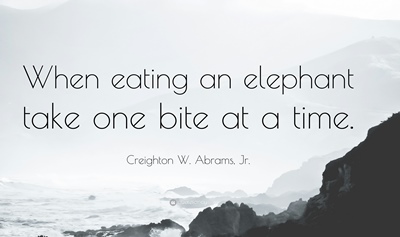I realize a lot of my value is sometimes to help clients faced with complex problems create smaller, more digestible chunks. To narrow down the scope to something manageable that can be readily be a scope for action.
 Of course this process is at the same time frustrating (all issues don’t get addressed, only the priority ones) and there is a definite risk of creating a local optimized solution that is not optimal at all for the entire system. However it is often the only way to progress into action.
Of course this process is at the same time frustrating (all issues don’t get addressed, only the priority ones) and there is a definite risk of creating a local optimized solution that is not optimal at all for the entire system. However it is often the only way to progress into action.
I realize that this act often requires leadership and the ability to take a risk, and is not natural to everyone. It is important to take the time address the major risk of creating a local solution incompatible with later developments by first going through an elucidation phase that is sufficient to clarify the system and avoid as much as possible this situation. And at the same time it is essential to progress and to resolve the priority issue that is under consideration.
Split the elephant into small chunks to eat it. Otherwise often we would not get anywhere. Take care about doing it right.











